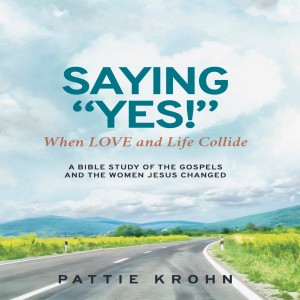Episodes

Wednesday Oct 30, 2019
saying Yes! - Week Seven : 06 Nov 2018 - RP
Wednesday Oct 30, 2019
Wednesday Oct 30, 2019
==This message was given in 2018, but is listed here for better chronological presentation==
As much as summer seems to be a season for weddings, the holidays seem to be a time for
engagements. Being engaged is such an interesting time in any young woman’s life. Ironically, it can
become a time in which women forget all about their groom. They essentially say “no” to the love of
their life as they say “yes” to the dress! In our western culture that makes it all about the bride, it is no
wonder many become “Bridezilla,” expecting everything/everyone to stop and say “yes” to serve them.
Our contemporary western customs of engagement are in stark contrast to the ancient Jewish customs
of Jesus day, where the focus was the groom and his family from beginning to end.
In Biblical times, the first step toward marriage was taken by the man and his family. An arrangement
was made, sealed by the groom and his family giving gifts: a bridal price given to bride’s family. The
bridal price could have been cash, but also could’ve been clothing, jewelry, or some other item of value.
Important to know that the bride price did not mean the girl was sold to be the young man’s property,
but the “price” was to recognize her economic worth, her value to the young man and his future.
Sometimes the groom and his family gave gifts to the bride too, for her future with their family.
This began the engagement, called a betrothal period, where the groom went to prepare a home for his
Bride -the focus of betrothal. When the home was ready, the groom would go, with his attendants, to
the home of his bride and get his bride and her wedding party (announced, surprisingly, with a horn).
The groom would then escort the whole wedding party to his house to begin the celebration feast.
At the celebration feast, that included music, dancing and lasted up to 2 weeks, the bride and groom’s
attendants were there to serve them. But if it was a royal wedding, the bride gave her attendants to her
groom to add to the glory of his court.
Even though the bride would adorn herself with jewels and beautiful clothing, her dress was to add to
groom’s beauty; he was the center of attention - his happiness, his beauty, his joy was the focus.
The most important part of the celebration was the pronouncement of blessing upon the union.
The bride then went to live in her husband’s home and became part of his family. She does not bring
anything into the marriage but herself. She gives herself completely to her groom and fam.
In our western mindset we might not see her joy, her excitement, her gratitude. But in her culture,
without a groom, she would be without a future. Because a man said “yes” to serving for her,
giving all he owned to her and she had a home and family. So she would spend her engagement saying
“yes” to serving him by being ready for when he came.
Throughout Scripture God’s people are referred to as a bride. And Jesus called the bridegroom. Our
groom, Jesus, wants us to understand that saying “yes” to serving Him is not about giving to him
what we have, it is about recognizing that we have nothing to give in of ourselves.
It’s about preparing for when He comes for us. And He so wants us to get this that He has given
us an account of two women He came for to illustrate it: Martha and Mary. Introduced to them in Luke


No comments yet. Be the first to say something!